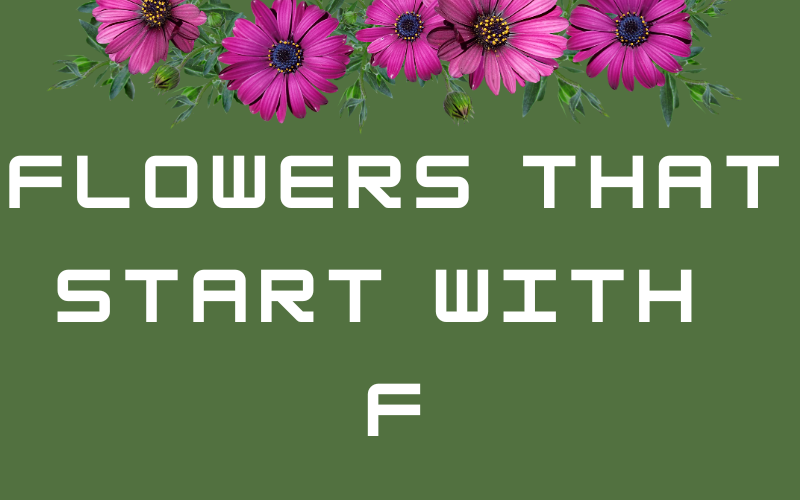Flowers are an essential part of nature and are known for their beauty and fragrance. We all know of some of the most popular flowers such as roses, lilies, and daisies, but there are many more flowers out there with unique and beautiful names. One such category is flowers name starting with F.
Some of the most popular flowers starting with F include the fragrant Freesia, the delicate Fuchsia, the exotic Frangipani, and the bright and cheery Forsythia. Freesia is known for its beautiful range of colors and its sweet fragrance, while Fuchsia is known for its unique shape and vibrant colors.
The Frangipani is a tropical flower that has a sweet and refreshing scent, and the Forsythia is known for its bright yellow color and early bloom time in the spring. These flowers are just a few examples of the many beautiful flowers that start with the letter F and add vibrancy and color to our gardens and homes.
Flowers Name Starting with F
Fairy Duster
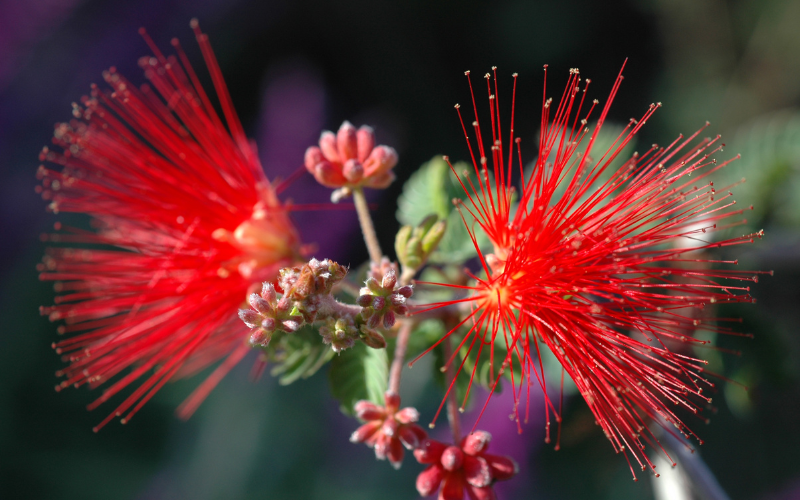
The Fairy Duster flower is a unique and beautiful plant with vibrant red or pink flowers that bloom in the shape of a puffball. This plant is a member of the legume family and is native to the southwestern United States and Mexico.
It is also very easy to care for and can thrive in many different types of soil. The Fairy Duster is also a favorite of butterflies, making it an excellent plant for those who want to attract wildlife to their gardens. Overall, the Fairy Duster flower is an excellent addition to any garden or outdoor space, adding a touch of unique beauty and charm.
| Scientific Name | Calliandra eriophylla |
| Native Range | Southwestern United States and Northern Mexico |
| Flowering Season | Spring |
Fan Flower
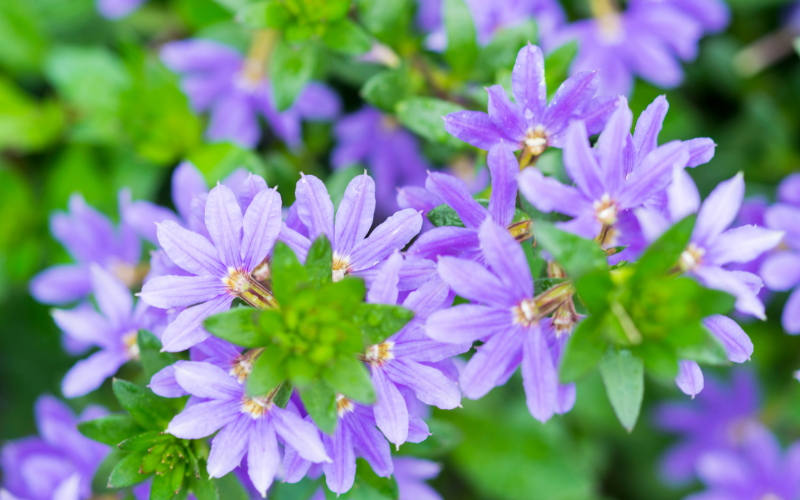
Fan Flower is a beautiful and unique plant that is native to Australia, but can now be found in various parts of the world. It is a low-growing, bushy plant with small, fan-shaped blooms that come in a range of colors including white, blue, pink, and purple.
Fan Flowers thrive in sunny locations and well-drained soil. They require minimal maintenance, making them perfect for busy gardeners or those who are new to gardening. They are also known for their ability to attract birds and butterflies to your garden.
| Scientific Name | Scaevola aemula |
| Native Range | Australia |
| Flowering Season | Spring to fall |
Fern Leaf Yarrow
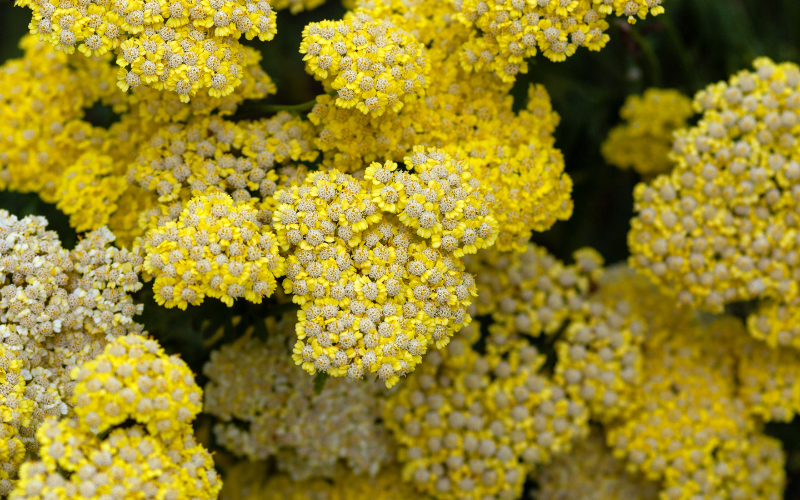
Fern Leaf Yarrow is a beautiful, delicate plant that is native to North America. It gets its name from its fern-like leaves, which are soft and feathery. The plant produces clusters of tiny yellow flowers that bloom in the late spring and summer months.
Fern Leaf Yarrow is easy to grow and care for, making it a popular choice for home gardens. It prefers well-drained soil and full sun, but can also tolerate partial shade. With its delicate beauty and medicinal properties, Fern Leaf Yarrow is a wonderful addition to any garden.
| Scientific Name | Achillea filipendulina |
| Native Range | Central Asia |
| Flowering Season | Late spring to early summer |
Fire Pink
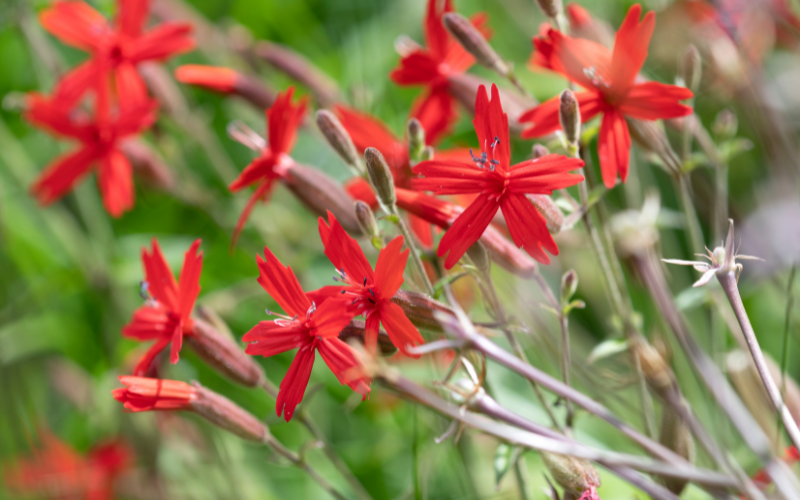
The Fire Pink flower is a strikingly beautiful wildflower found in the eastern regions of North America. The name “Fire Pink” comes from the vibrant red color of its petals, which look like they are on fire. This flower blooms in the spring and summer months, typically from April to July.
The Fire Pink flower is also known for its medicinal properties, as it has been used in traditional medicine for centuries to treat a variety of ailments including digestive problems and respiratory issues. Overall, the Fire Pink flower is a stunning and useful plant that adds beauty and value to the natural world.
| Scientific Name | Silene virginica |
| Native Range | Eastern North America |
| Flowering Season | Late spring to early summer |
Firecracker Flower
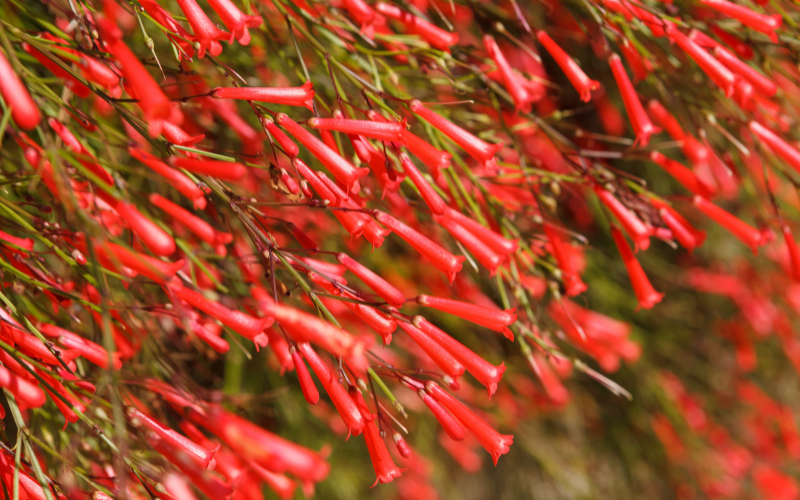
The Firecracker Flower is a beautiful and unique plant that is native to South America, but now can be found in many parts of the world. With its vibrant red flowers that bloom all year round, it’s easy to see why this plant is so popular.
The Firecracker Flower, also known as the Coral Plant, gets its name from the shape of its flowers which resembles the explosive end of a firecracker. This plant is easy to care for and can thrive in both indoor and outdoor environments. It prefers partial shade and well-draining soil to grow successfully.
| Scientific Name | Crossandra infundibuliformis |
| Native Range | India & Sri Lanka |
| Flowering Season | Spring to fall |
Fivespot Flower
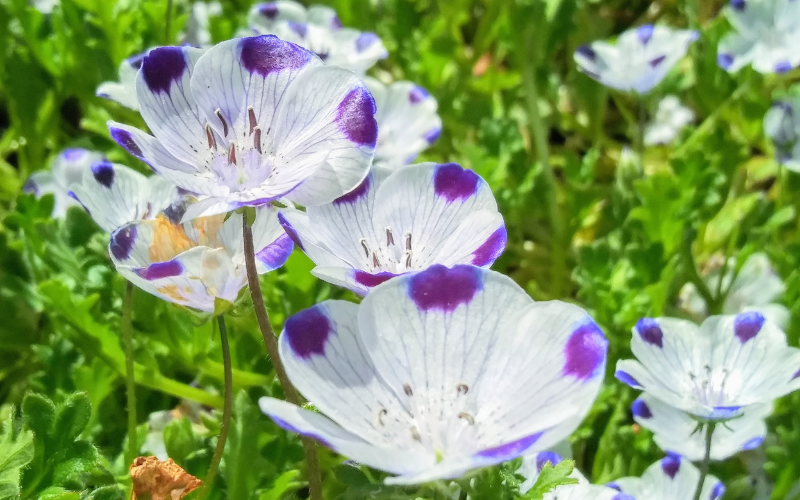
The Fivespot Flower is a beautiful and unique plant that can be found in various parts of the world, including North America, Europe, and Asia. As the name suggests, this flower has five petals that are arranged in a distinctive pattern, with two petals being significantly larger than the other three.
It prefers well-drained soil and full sunlight, but can also grow in partially shaded areas. The plant blooms from early summer to fall and produces attractive small flowers in shades of purple, pink, and white. The Fivespot Flower is not only aesthetically pleasing, but also serves as an important source of nectar for bees, butterflies, and other pollinators.
| Scientific Name | Nemophila maculata |
| Native Range | California, Oregon, Nevada, and Baja California in Mexico |
| Flowering Season | Spring or early summer |
Flannel Flower
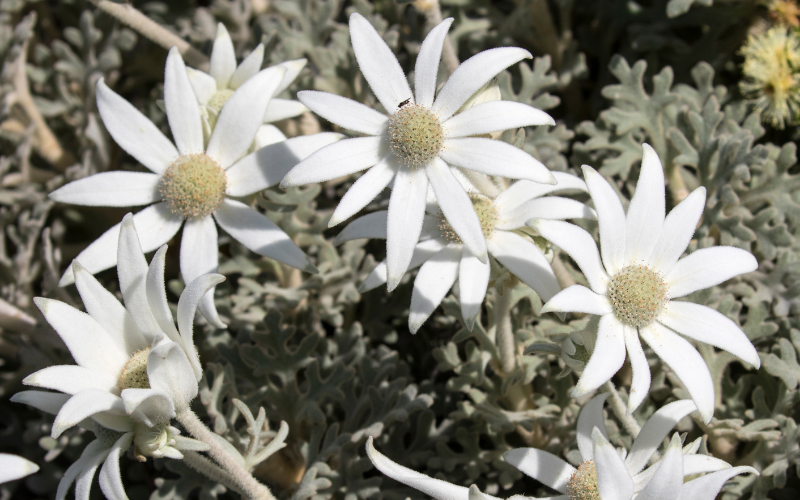
The flannel flower is a striking and unique plant. It is native to Australia. Its scientific name is Actinotus helianthi and it is a member of the Apiaceae family. Flannel flowers are typically found in the eastern regions of Australia, growing in sandy soils and rocky outcrops.
The flowers themselves have a soft, velvety texture, almost like flannel, which is where they derive their name from. They are white in color and have a distinctive yellow center, with petals that are arranged in a circular shape to resemble a daisy. Flannel flowers bloom in the spring and summer months, and their blooms can last for several weeks.
| Scientific Name | Actinotus helianthi |
| Native Range | Australia |
| Flowering Season | Spring to summer |
Flax Flower
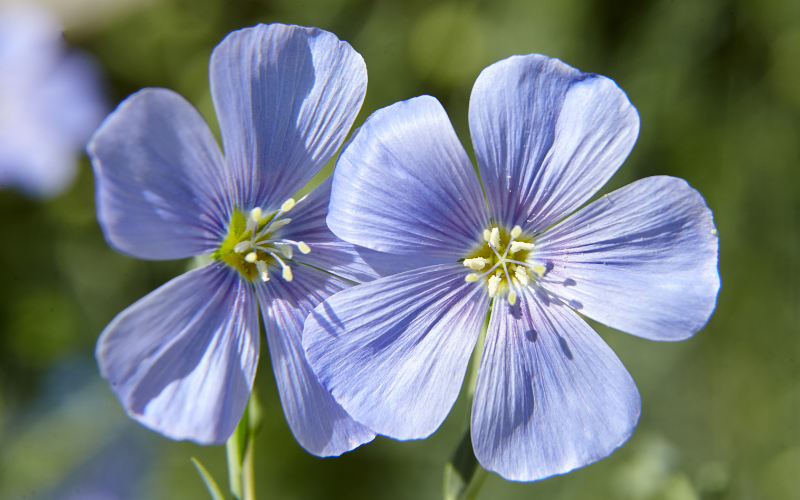
The Flax flower is a beautiful blue flower that is grown around the world for both its ornamental and practical uses. The plant itself is tall and slender with small, oval leaves and delicate blue flowers that bloom in the summer.
Flax is also cultivated for its seeds, which are a rich source of omega-3 fatty acids, fiber, and other essential nutrients. These seeds can be ground into a powder and used in a variety of products, including bread, cereal, and even cosmetics.
| Scientific Name | Linum usitatissimum |
| Native Range | Canada, Russia, China, India, and various European countries |
| Flowering Season | Summer |
Forget Me Not
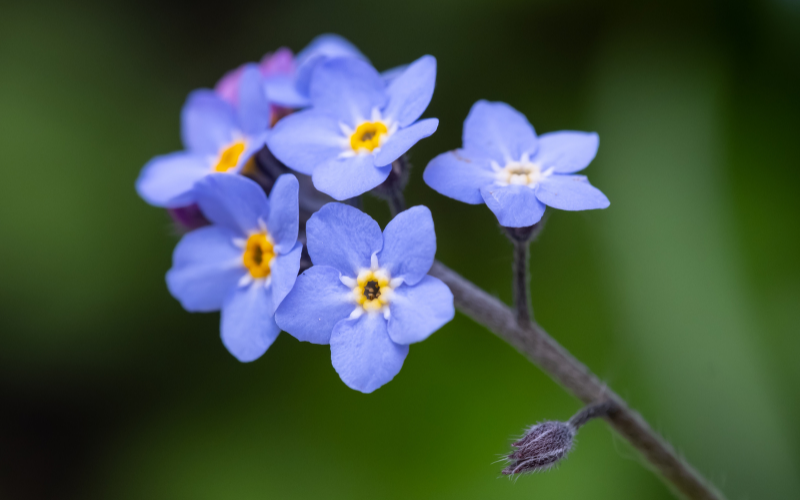
The Forget Me Not flower is a beautiful plant. These delicate flowers are known for their stunning blue color, which ranges from pale sky blue to deep royal blue. While they are small in size, they are incredibly resilient and can grow in a variety of conditions, including shady areas.
Additionally, the Forget Me Not is the official state flower of Alaska, where it is known for its hardiness and ability to thrive in cold weather. Whether you plant them in your garden or give them as a gift, the Forget Me Not is a beautiful and meaningful flower.
| Scientific Name | Myosotis |
| Native Range | Europe, Asia, and North America |
| Flowering Season | Spring or early summer |
Forsythia
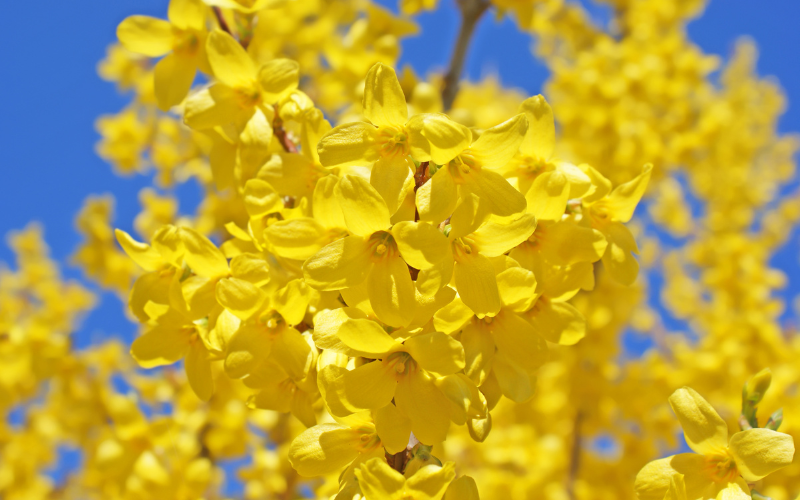
The Forsythia flower is one of the first signs of spring. This beautiful flower produces yellow blooms that cover the branches before the leaves begin to grow. This plant can grow up to 10 feet tall and 10 feet wide, making it a great choice for hedges.
Forsythia flowers also have a rich history in Chinese medicine where they have been used to treat a variety of ailments, including fever and inflammation.
| Scientific Name | Forsythia |
| Native Range | China, Japan, and Korea. |
| Flowering Season | Spring |
Flax Lily
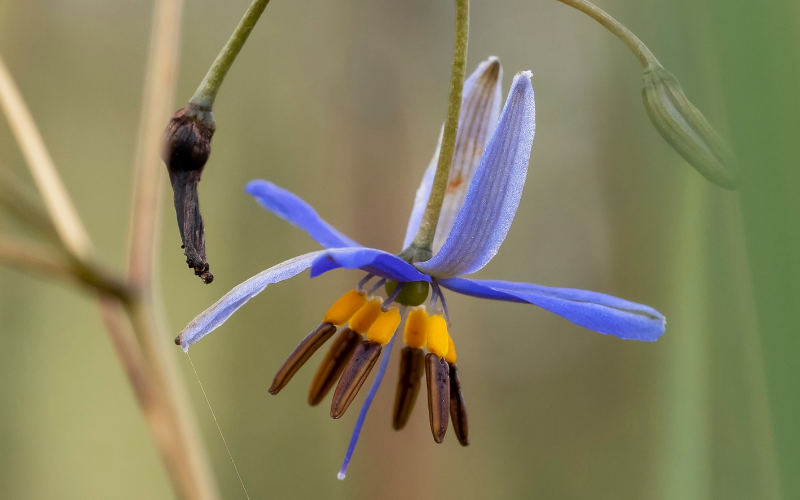
Flax Lily is a beautiful flower. It is scientifically known as Dianella spp. It is native to various regions around the world, including Australia, New Zealand, and parts of Asia.
The flower color can vary depending on the species and variety, ranging from shades of blue, purple, white, or yellow. Flax Lily flowers generally bloom during the spring or summer months. It is a low-maintenance plant, requiring minimal watering and fertilization once established.
| Scientific Name | Dianella |
| Native Range | Africa, Asia, Australia |
| Flowering Season | Spring |
Flowering Almond
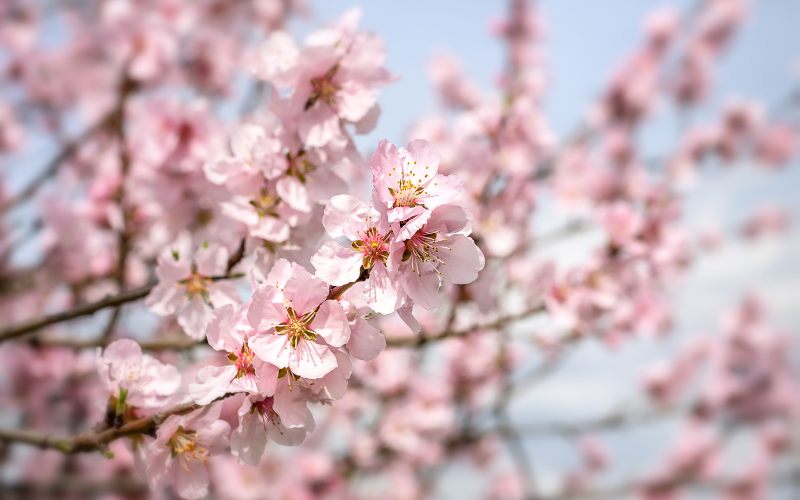
Flowering Almond is a beautiful flower. It is scientifically known as Prunus triloba. The flowers of the Flowering Almond are composed of multiple layers of petals, giving them a dense and full appearance. They have a fluffy and delicate texture, resembling miniature roses.
The Flowering Almond typically blooms in early spring, usually from March to April, depending on the specific climate and location. The Flowering Almonds are attractive to bees, butterflies, and other beneficial insects.
| Scientific Name | Prunus glandulosa |
| Native Range | China |
| Flowering Season | Spring |
Flowering Dogwood
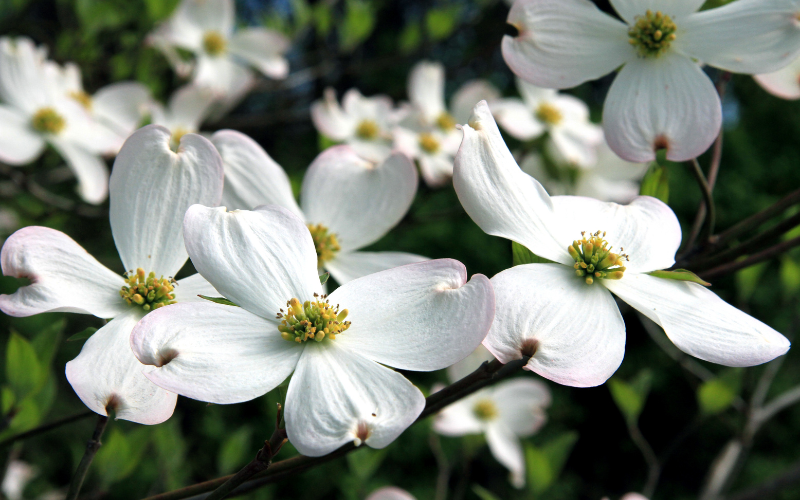
Flowering Dogwood is the most beautiful flower. It is scientifically known as Cornus Florida. This tree is native to eastern parts of North America and is particularly famous for its showy blooms that emerge in early spring.
The Flowering Dogwoods come in various shades, including white, pink, and sometimes even red. The flowers of the Flowering Dogwood also attract various pollinators, such as bees and butterflies. It is no wonder that the flowering dogwood has become an iconic symbol of spring
| Scientific Name | Cornus florida |
| Native Range | Eastern North America |
| Flowering Season | Spring |
Flowering Maple
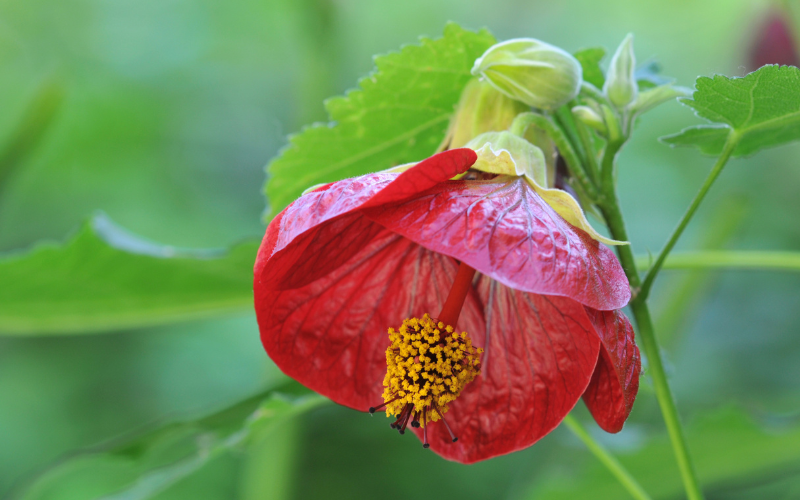
Flowering Maple is a beautiful flower. It is also known as Abutilon. They come in a wide range of colors, including shades of red, orange, yellow, pink, and white.
The Flowering Maple is known for attracting hummingbirds and other pollinators, adding to their charm. This plant is relatively low-maintenance, making it a great choice. Flowering Maple is prized for its showy and long-lasting flowers, making it a popular choice among gardeners.
| Scientific Name | Abutilon |
| Native Range | Africa, Asia, Australia, & the Americas |
| Flowering Season | Summer to fall |
Forest Lily
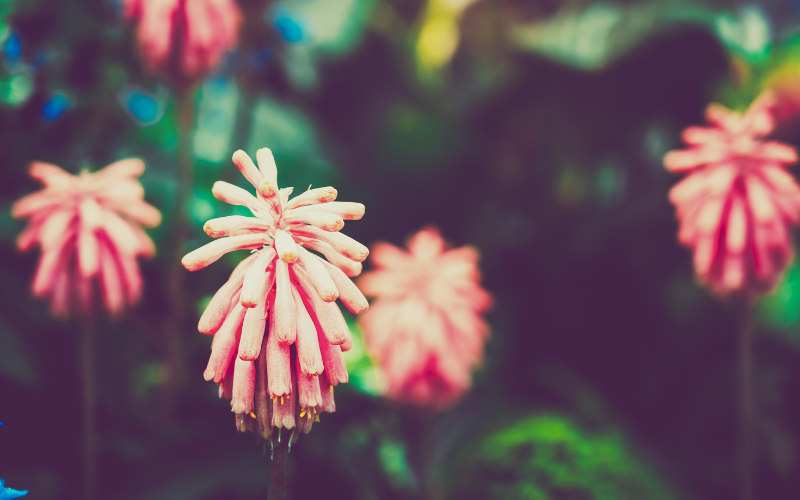
Forest Lily is a beautiful flower. It is native to South Africa. It belongs to the Amaryllidaceae family. Forest Lily is a popular houseplant and garden plant known for its striking clusters of orange or red flowers.
The flowers are typically vibrant orange, but cultivars with yellow, peach, or red flowers are also available. The plant requires well-draining soil and regular watering during the growing season. Its vibrant and long-lasting flowers, make it a popular choice for adding color to indoor spaces or shaded areas in gardens.
| Scientific Name | Veltheimia bracteata |
| Native Range | South Africa |
| Flowering Season | Winter to spring |
Fourleaf Allseed
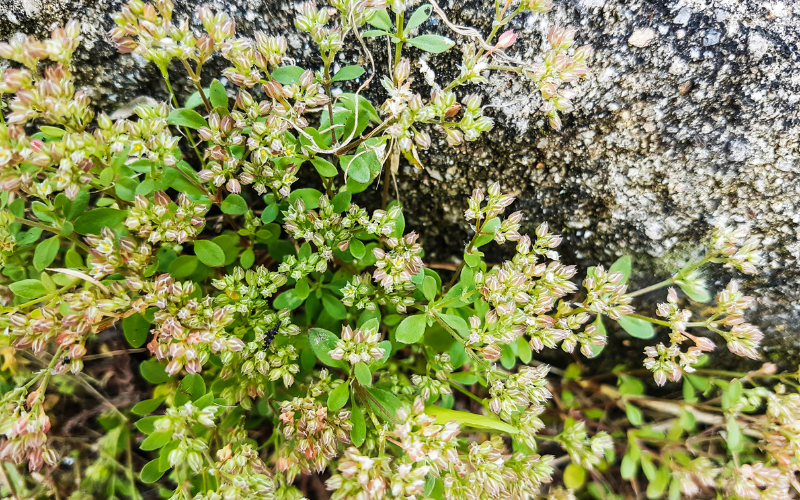
Fourleaf Allseed is a beautiful flower. It is scientifically known as Polycarpaea corymbosa. It is native to coastal areas of the Americas, including parts of North America, the Caribbean, and South America.
It can grow up to about 30 centimeters (12 inches) in height. It comes in vibrant hues of purple, pink, and blue color. These flowers attract bees and butterflies, with their sweet and alluring fragrance. It is a low-maintenance plant.
| Scientific Name | Polycarpon tetraphyllum |
| Native Range | Europe |
| Flowering Season | Spring to fall |
Foxglove
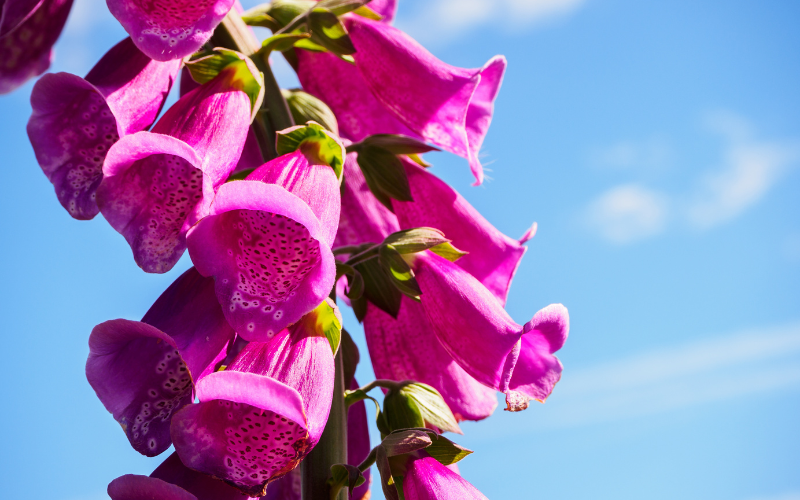
Foxglove is a beautiful flower. It is also known by its scientific name Digitalis purpurea. The flowers come in a variety of colors, including shades of white, pink, and purple. It is native to Europe.
The flower spikes can reach heights of up to 1.8 meters (6 feet) or more, creating an impressive vertical display. Foxgloves typically bloom in late spring to early summer. Foxgloves are also valuable for their role in attracting, particularly bees and hummingbirds. Foxgloves are popular garden plants.
| Scientific Name | Digitalis purpurea |
| Native Range | Europe |
| Flowering Season | Summer |
Fragrant Daphne
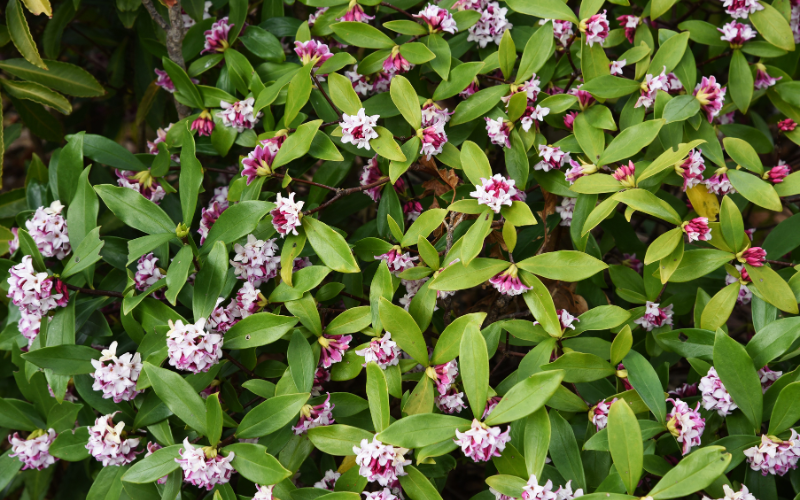
Fragrant Daphne is a beautiful flower. It is commonly known as Daphne odora, is a small evergreen plant. It is native to China and Japan and belongs to the Thymelaeaceae family. Fragrant Daphne flowers typically appear in late winter to early spring.
Fragrant Daphne are small, typically around 1 inch in diameter, but they make up for their size with an intense, sweet fragrance. The Daphne flower comes in various colors, including shades of pink, and white.
| Scientific Name | Daphne odora |
| Native Range | China |
| Flowering Season | Spring to summer |
Fragrant Water Lily
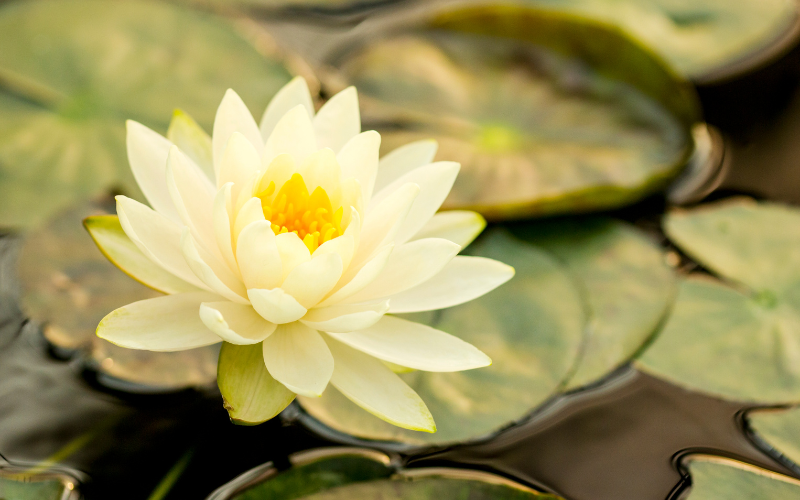
Fragrant Water Lily is a beautiful flower. It is scientifically known as Nymphaea odorata. It is native to North America. The flowers of the Fragrant Water Lily are large, typically measuring around 10 to 20 centimeters (4 to 8 inches) in diameter.
The leaves of the Fragrant Water Lily are large, round, and floating on the water’s surface. They can reach diameters of up to 30 centimeters (12 inches) . They require a sunny location and still or slow-moving water to thrive.
| Scientific Name | Nymphaea odorata |
| Native Range | North and Central America |
| Flowering Season | Summer |
Freesia
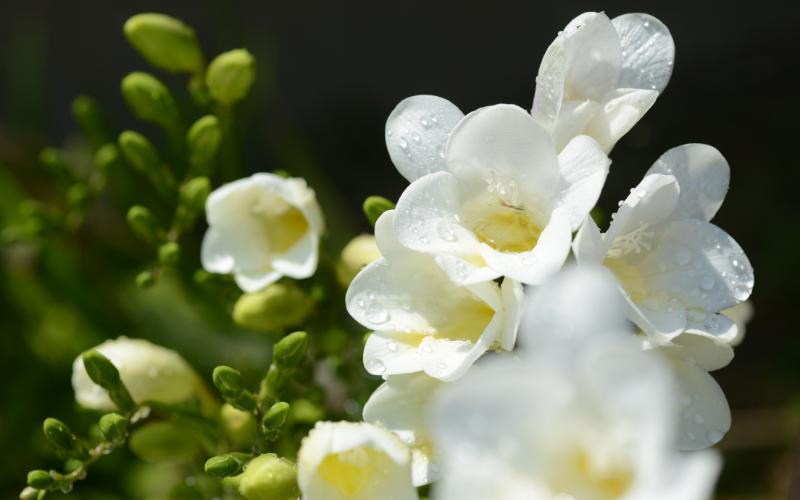
Freesia is a popular and fragrant flowering plant that belongs to the Iridaceae family. It is native to southern Africa, specifically regions such as South Africa and Lesotho.
They come in a wide range of colors, including white, yellow, orange, pink, lavender, and various shades of red. They bloom in spring or early summer. Freesias prefer well-draining soil and full sun to partial shade. They can be grown in the ground or in containers.
| Scientific Name | Freesia |
| Native Range | Southern Africa |
| Flowering Season | Spring to summer |
False Goat’s Beard
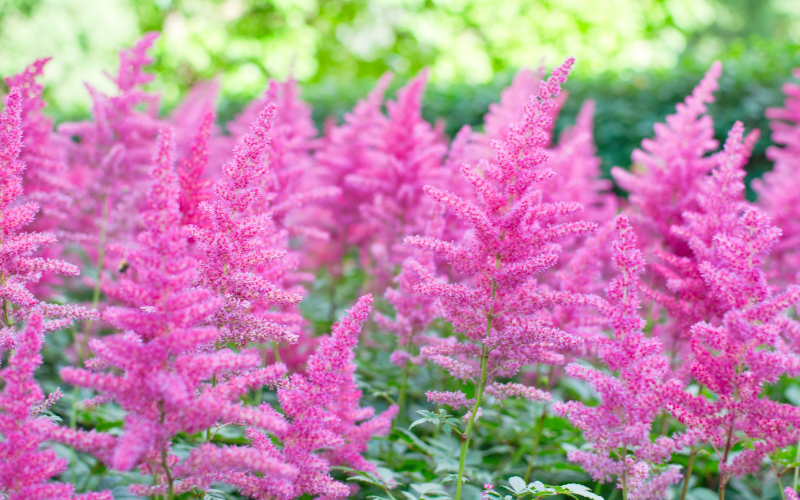
False Goat’s Beard, also known as Astilbe, is a lovely flower in the Saxifragaceae family. Native to Asia and North America, this flower comes in many lovely hues such as pink, red, white, and lavender. This flower grows in moist, well-drained soil enriched with organic matter.
It blooms in late spring or early summer and can reach a height of 4 feet. Roots were used to cure skin wounds and calm inflammation. The feathery, fern-like foliage and fluffy, plume-like bloom clusters of False Goat’s Beard create a mystical mood.
| Scientific Name | Astilbe |
| Native Range | Asia & North America |
| Flowering Season | Spring to summer |
Feathered Cockscomb
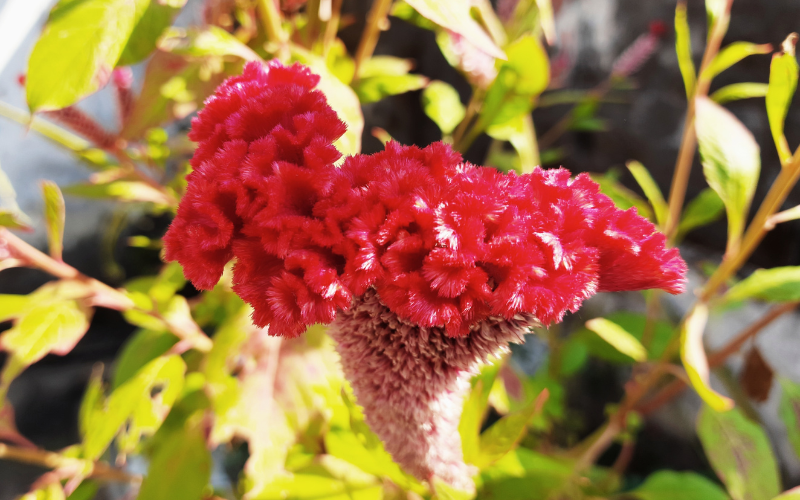
Feathered Cockscomb, or Celosia argentea, is a member of the Amaranthaceae family and native to tropical Africa and Asia. This flower blooms in late summer and early fall, with bright hues of red, yellow, orange, and pink, thrives on well-drained soil, and prefers full sun.
This flower can grow up to 3 ft. tall. Feathered Cockscomb has a striking flower head that looks like a rooster’s comb and its unique textured foliage and bright blooms make it a standout choice for any garden.
| Scientific Name | Celosia argentea var. cristata |
| Native Range | India |
| Flowering Season | Summer to fall |
Fritillary
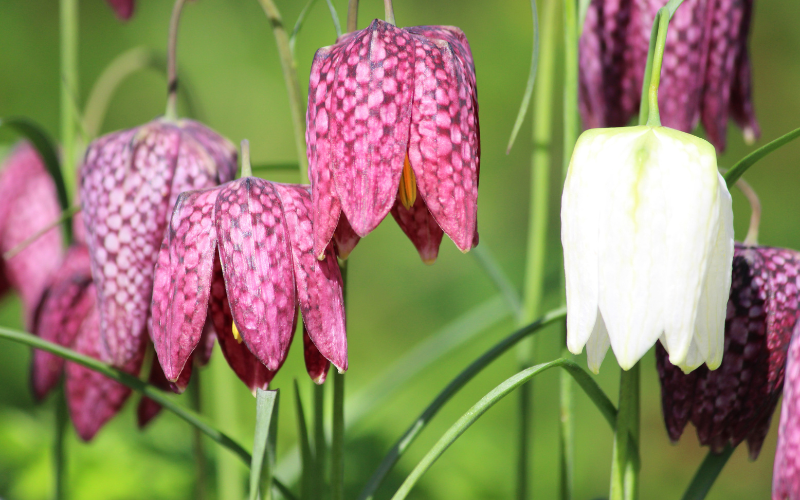
Fritillaries are fascinating flowers native to Europe, Asia, and North America. They are members of the Liliaceae family and are recognized for their brilliant colors and rare look. From the snake’s head fritillary’s traditional purple and white checkered petals to the royal fritillary’s brilliant orange hues, these blooms never fail to amaze.
They thrive in well-drained soils, bloom in the spring or early summer, and can reach a height of 3 feet. Its bulb has stimulant and anti-inflammatory effects. Fritillaries are an absolute joy to behold, with their unique bell-shaped flowers and rare checkered patterns.
| Scientific Name | Fritillaria |
| Native Range | Northern Hemisphere |
| Flowering Season | Spring to summer |
Fairy Primrose
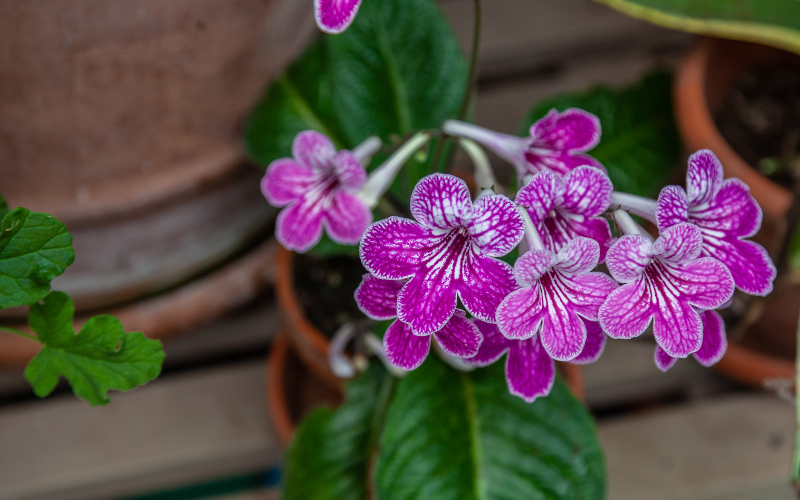
Fairy Primrose, or Primula malacoides, is a lovely flower in the Primulaceae family. This flower is native to China and comes in a range of shades such as pink, purple, white, and red. It blooms in the spring, prefers well-drained soil, and can grow up to 12 inches tall.
The soft & a bit wrinkled petals with the rosette-like structures of Fairy Primroses identify them. The flowers cluster at the top of thin stalks, giving them a delicate and magical aspect, and it is a true gem in the world of floral miracles.
| Scientific Name | Primula malacoides |
| Native Range | Asia |
| Flowering Season | Spring |
Fragrant Orchid
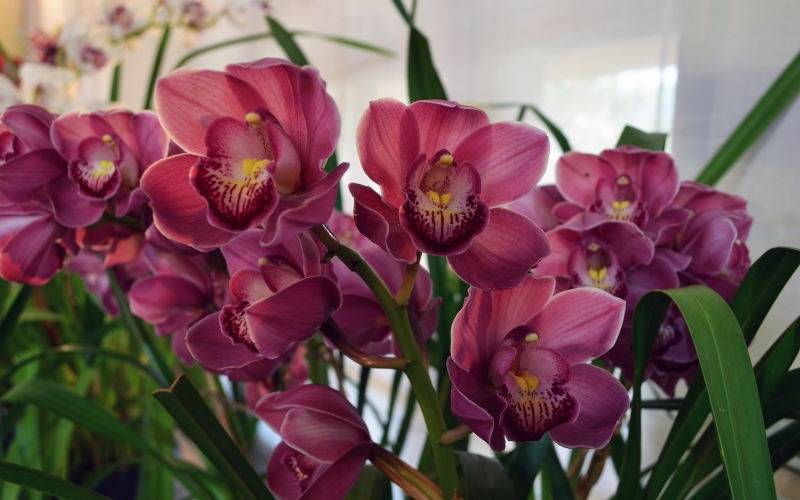
The fragrant orchid, or Gymnadenia conopsea, is a luring member of the Orchidaceae family. Native to Europe and Asia, fragrant orchids come in a range of hues, including pink, purple, and white, and can grow up to 24 inches tall.
They bloom in late spring or early summer in well-drained, slightly acidic soils. The fragrant orchid is a true gem of the floral kingdom, with its attractive beauty and alluring aroma that fills the air and attracts pollinators.
| Scientific Name | Gymnadenia conopsea |
| Native Range | Northern Europe |
| Flowering Season | Summer |
Fernleaf Bleeding Heart
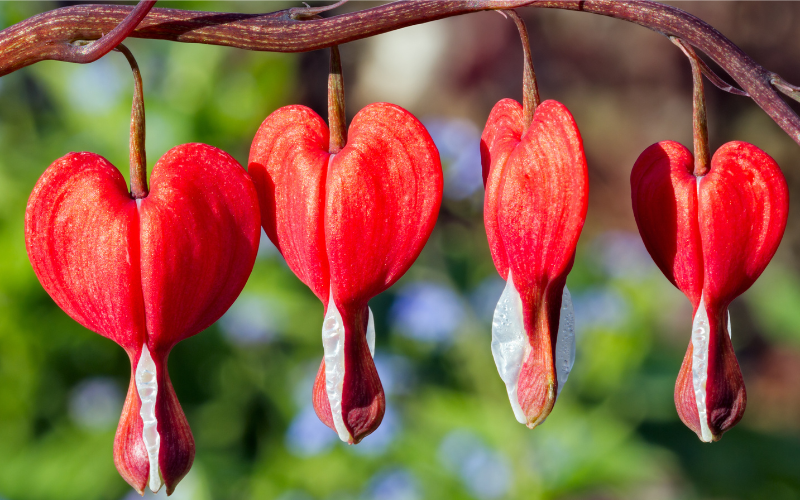
The Fernleaf Bleeding Heart is native to eastern North America and is also known as Dicentra eximia. The flowers bloom in late spring to early summer and come in a variety of colors, including pink, white, and red.
They thrive in moist, well-drained soil, rich in organic matter. Fernleaf Bleeding Heart can reach a height of 1 to 2 feet. This flower is known for its rare beauty, with delicate fern-like foliage and heart-shaped flowers that drop gently from hanging branches.
| Scientific Name | Dicentra eximia |
| Native Range | Eastern North America |
| Flowering Season | Spring to fall |
False Forget-me-not

False Forget-me-not, or Brunnera macrophylla, is a gorgeous Boraginaceae family member. Native to Eastern Europe, these have lovely drops of small, star-shaped flowers in blue, pink, or white.
Blooms in late spring to early summer prefer moist, well-drained soil, and can grow up to 18 inches tall. It has chemicals that have anti-inflammatory and antioxidant effects. They bloom on tall stalks over heart-shaped, green leaves, and create a pleasing backdrop to the bright blooms, adding a touch of charm.
| Scientific Name | Brunnera macrophylla |
| Native Range | The Caucasus |
| Flowering Season | Spring to summer |
Flamingo Flower
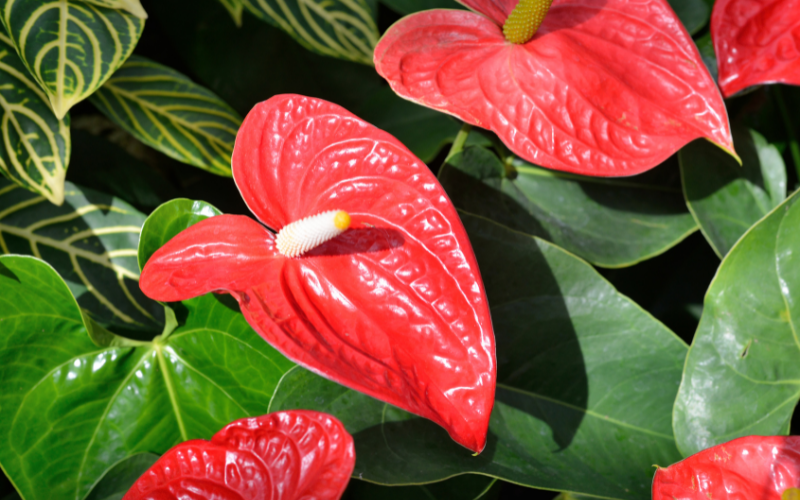
The Flamingo Flower, or Anthurium andreanum, is an amazing Araceae family plant. Colors vary from vibrant red to pink to even white and are native to the tropical regions of South America, including Colombia and Ecuador.
It blooms in the spring and summer, thrives in well-draining soil rich in organic materials, and can grow up to 2 ft. tall. The Flamingo Flower has huge, glossy heart-shaped leaves with a unique spadix and spathe structure that adds a sense of beauty to any environment.
| Scientific Name | Anthurium andraeanum |
| Native Range | Colombia & Ecuador |
| Flowering Season | All year |
Frangipani
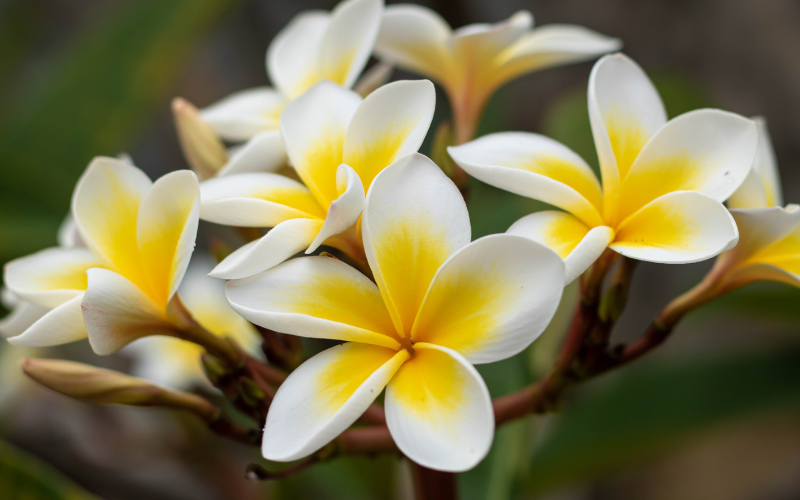
Frangipani, also called Plumeria, is an attractive flower in the Apocynaceae family. Frangipani flowers come in plenty of colors, including white, yellow, pink, & red, and are native to the Caribbean, South America, and the Pacific Islands.
Frangipanis grow best in well-drained soil and bloom from spring to autumn, reaching heights of 15 to 25 feet. Frangipani is famous for its gorgeous and fragrant flowers, and it makes a luring addition to any garden, giving a touch of exotic beauty wherever it grows.
| Scientific Name | Plumeria |
| Native Range | Central America, Mexico, & the Caribbean |
| Flowering Season | Spring to summer |
Field Bindweed
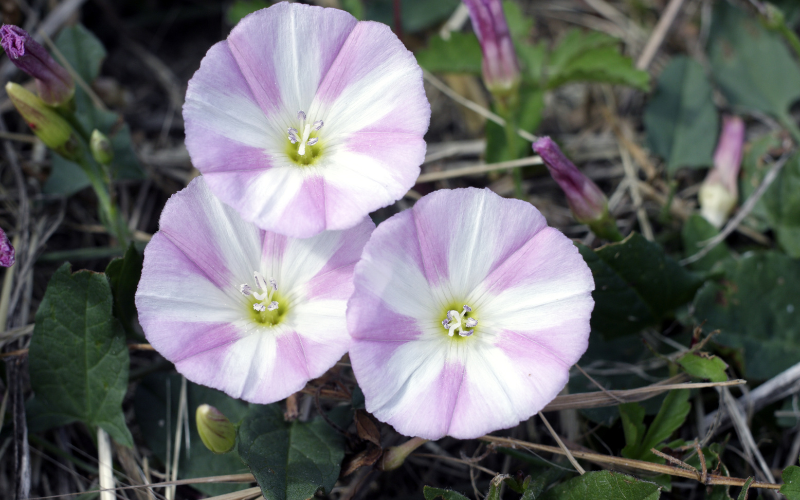
Field bindweed, or Convolvulus arvensis is a flower in the Convolvulaceae family. It is distinguished by its delicate, funnel-shaped white or light pink blooms, which are native to Europe and Asia.
It blooms from late spring to early autumn, thrives in a variety of soil types, and grows up to 6 feet tall, with its slender stems twining and trailing along the ground or climbing fences and other structures. Due to its fragile, trumpet-shaped flowers and hanging vines, it is a unique and attractive flower.
| Scientific Name | Convolvulus arvensis |
| Native Range | Asia & Europe |
| Flowering Season | Summer to fall |
Fuchsia
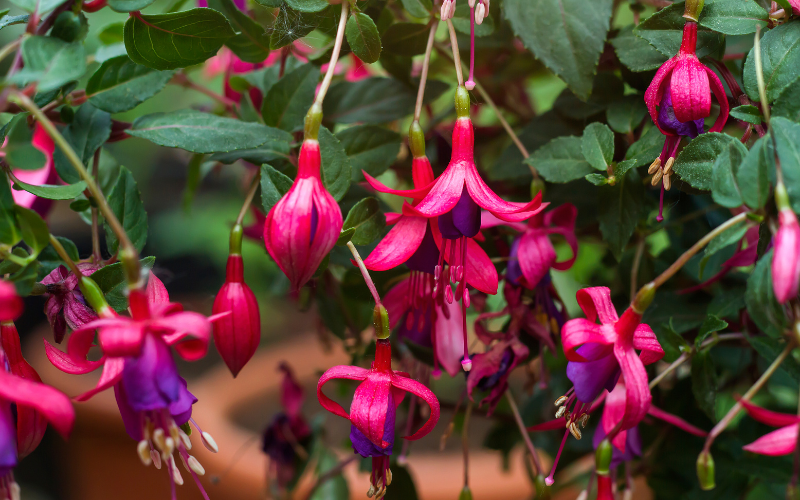
The Fuchsia is a stunning flower. It is native to Central and South America. This beautiful flower comes in a variety of shades including deep magenta, and hot pink. The Fuchsia plants are known for their long blooming season, typically from late spring to fall.
Fuchsia plants thrive in well-drained soil and prefer partial shade to filtered sunlight. They are sensitive to extreme heat and direct sunlight.
| Scientific Name | Fuchsia |
| Native Range | South America |
| Flowering Season | late spring through the summer and into the early fall |
French Marigold
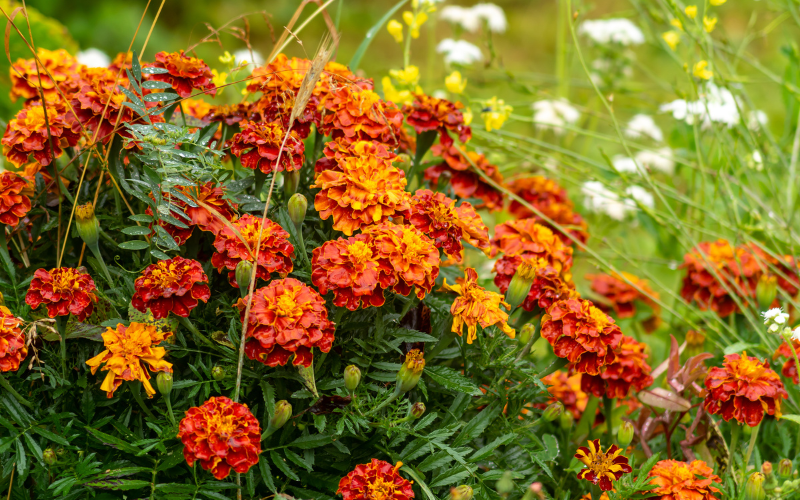
The French Marigold is a charming flower. It is scientifically known as Tagetes patula. It is native to Mexico and Central America. These marigolds come in a variety of colors, including shades of yellow, orange, red, and mahogany.
French Marigolds are known for their long blooming season, typically from late spring to the first frost in the fall. It is easy to grow and prefers well-drained soil.
| Scientific Name | Tagetes patula |
| Native Range | Mexico |
| Flowering Season | Early Summer Until Frost |
Foxtail Lily
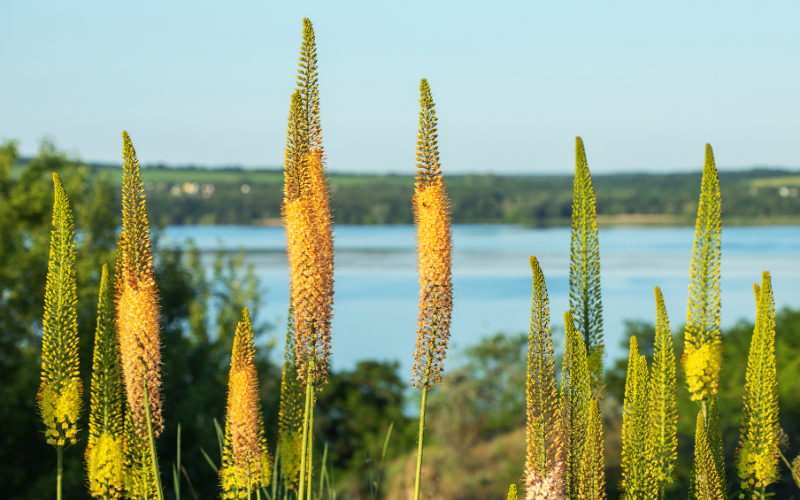
The Foxtail Lily is a striking and unique flower. It is scientifically known as Eremurus. It is native to Central Asia. It comes in various shades, including white, yellow, orange, and pink.
Foxtail Lily flower spikes can reach impressive heights, with some varieties growing up to 6 to 8 feet (1.8 to 2.4 meters) tall. Foxtail Lilies typically bloom in late spring to early summer. Foxtail Lilies thrive in well-drained soil and prefer full sun.
| Scientific Name | Eremurus robustus |
| Native Range | Central Asia |
| Flowering Season | Late spring to mid-summer |
Four o’clock Flower
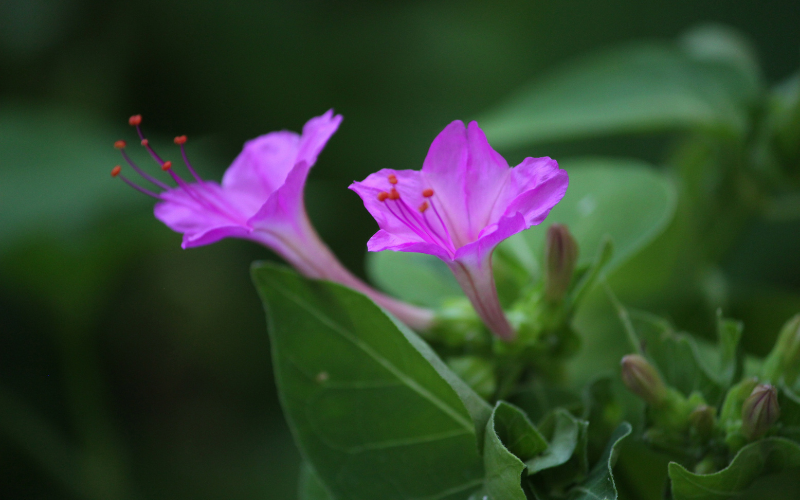
Four o’clock Flower is a beautiful flower. It is scientifically known as Mirabilis jalapa. Four O’Clock Flowers are native to regions in South America, particularly in Peru. These flowers come in a wide range of colors, including shades of red, pink, white, and yellow.
The size of Four O’Clock Flowers can vary, but the blossoms are typically around 1 to 2 inches (2.5 to 5 cm) in diameter. Four O’Clock Flowers are easy to grow and are typically grown as annuals in most regions.
| Scientific Name | Mirabilis jalapa |
| Native Range | America |
| Flowering Season | Summer Through Fall |
Flowering Raspberry
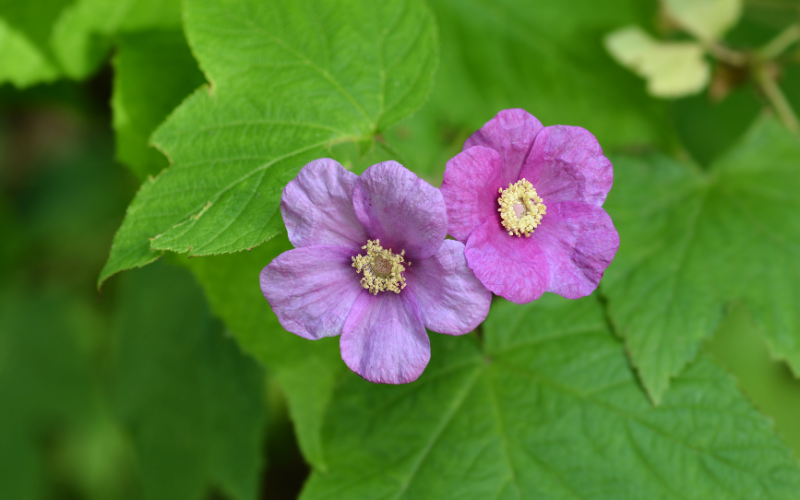
The Flowering Raspberry is a stunning flower. It is scientifically known as Rubus odoratus. It is native to eastern North America. Flowering Raspberry typically blooms in late spring to early summer.
The flowers are typically pink to rose-colored. It prefers well-drained soil and partial to full shade. It is a hardy plant that can tolerate a range of soil types and moisture levels.
| Scientific Name | Rubus odoratus |
| Native Range | North America |
| Flowering Season | Early spring to early fall |
Flowering Onion
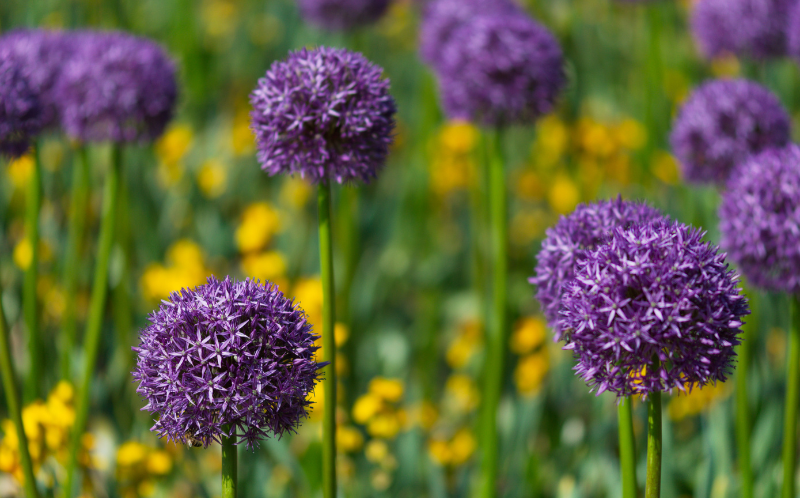
Flowering Onion is a lovely flower. It is scientifically known as Allium. It is native to Asia and North America. It comes in a range of colors, including shades of purple, pink, blue, white, and even yellow.
Flowering Onion plants typically bloom in late spring to early summer. Flowering Onion plants thrive in well-drained soil and prefer full sun to partial shade.
| Scientific Name | Allium |
| Native Range | Asia and North America |
| Flowering Season | Late spring to early summer |
Florida Swamp Lily
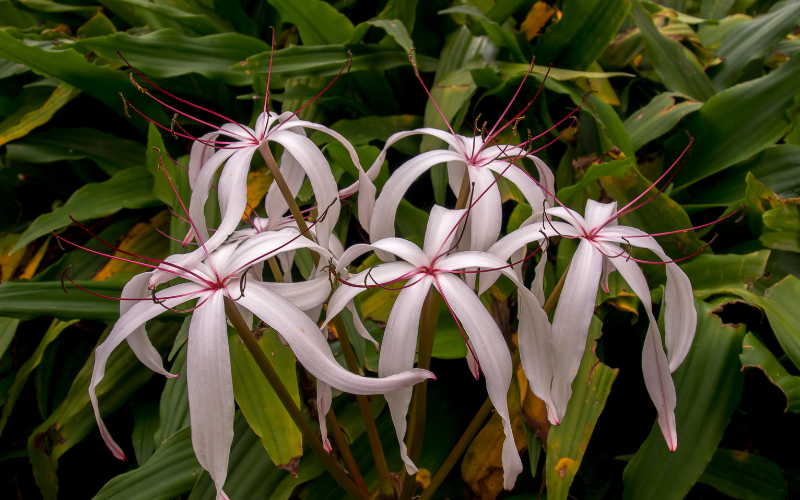
Florida Swamp Lily is a lovely flower. It is scientifically known as Crinum americanum. It is native to the southeastern United States. The flowers are typically white or pale pink. Florida Swamp Lily typically blooms in late spring to summer.
Florida Swamp Lily thrives in wet and marshy areas, making it well-suited for gardens with consistently moist soil. It prefers full sun to partial shade.
| Scientific Name | Crinum americanum |
| Native Range | North America |
| Flowering Season | Late spring to early summer |
‘Flaming Parrot’ Tulip
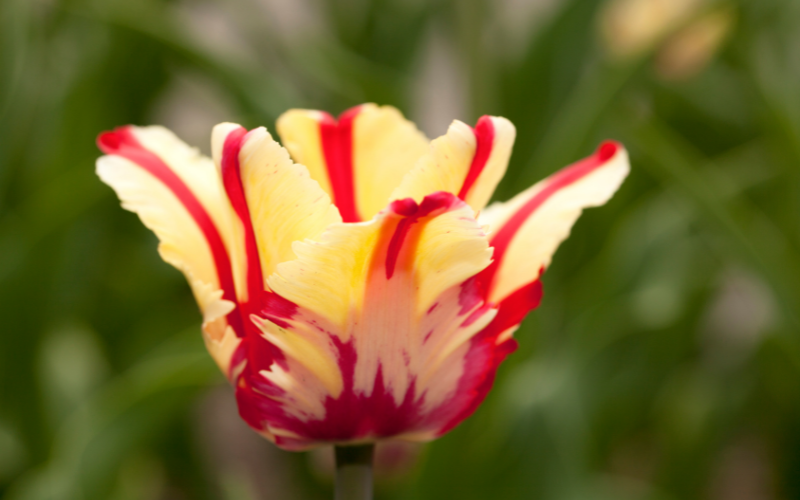
The ‘Flaming Parrot’ tulip is a mesmerizing flower. The size of ‘Flaming Parrot’ Tulip flowers can vary, but they are generally substantial, with blooms often reaching 4 to 6 inches (10 to 15 cm) in diameter.
The primary color of ‘Flaming Parrot’ Tulips is typically a brilliant red or orange-red. ‘Flaming Parrot’ Tulips typically bloom in spring. They are often used in flower beds, borders, and containers.
| Scientific Name | Tulipa ‘Del Piero’ |
| Native Range | Himalayan mountains |
| Flowering Season | Spring |
Flowering Currant
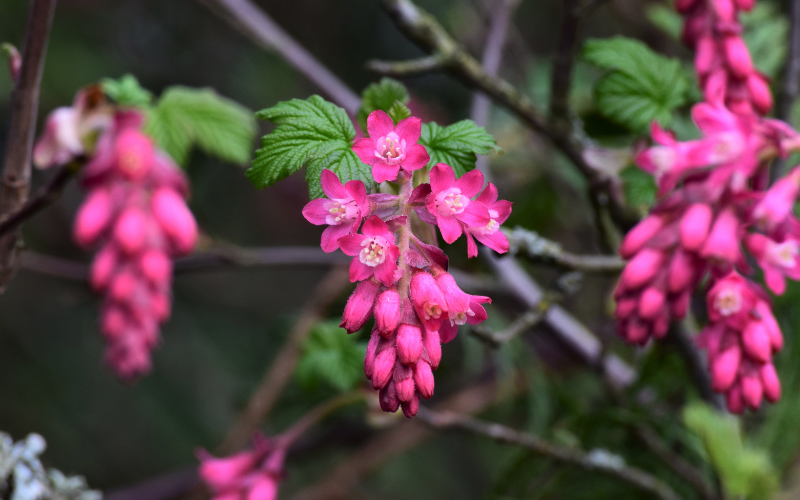
The Flowering Currant is a stunning flower. It is scientifically known as Ribes sanguineum. It is native to western North America. The flowers come in shades of pink to reddish-pink, with some cultivars featuring white or pale yellow blossoms.
They typically bloom in late winter to early spring. Flowering Currant thrives in well-drained soil and prefers full sun to partial shade.
| Scientific Name | Ribes sanguineum |
| Native Range | Western United States and Canada |
| Flowering Season | Spring |
Flaming Katy
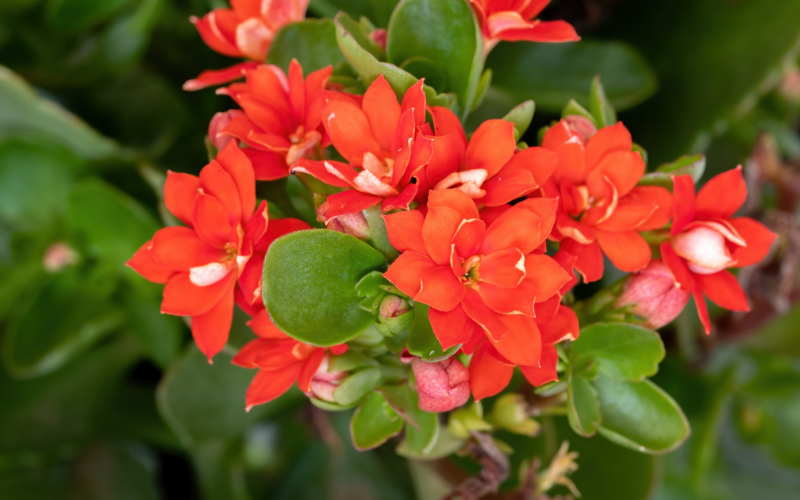
Flaming Katy is a beautiful flower. It is scientifically known as Kalanchoe blossfeldiana. The flowers of Flaming Katy come in a wide range of vibrant colors, including shades of red, orange, yellow, pink, and white.
Flaming Katy is known for its long-lasting blooms, which can occur throughout the year, especially in favorable indoor conditions. It thrives in well-draining potting soil and bright, indirect sunlight.
| Scientific Name | Kalanchoe blossfeldiana |
| Native Range | Madagascar |
| Flowering Season | Spring to Summer |
Question & Answer
Which flower absorbs water the fastest?
Sunflowers have large, thick stems that are capable of absorbing water rapidly.
Which two flowers grow in water?
Two flowers that commonly grow in water are the Water Lily (Nymphaea spp.) and the Lotus (Nelumbo spp.).
Which flowers don’t produce fruit?
There are many flowers that do not produce fruit. These flowers are typically grown for their ornamental value rather than for their fruit-bearing capabilities.
What is a complete flower?
A complete flower is a flower that contains all four main floral organs: sepals, petals, stamens, and carpels.
